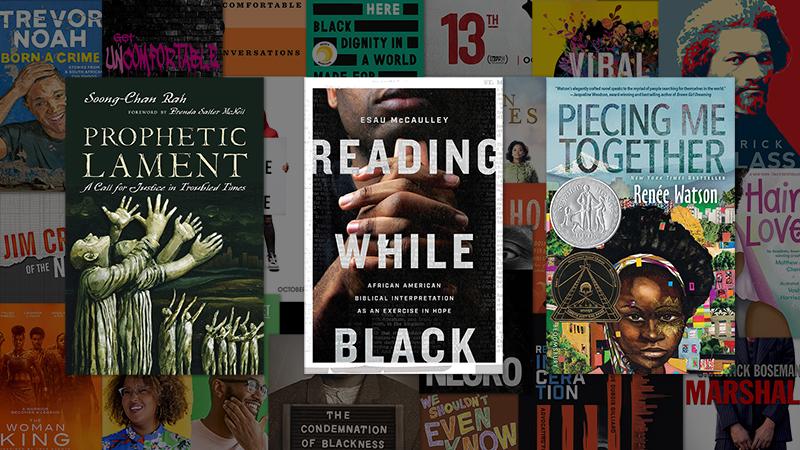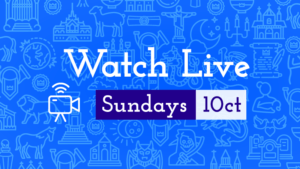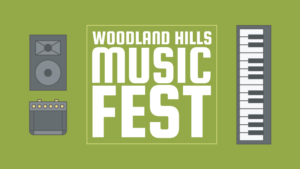This year was our third annual Learnathon, and you blew past our 500 hour goal, bringing in a total of 677 hours of learning!
Y’all watched TED talks and PBS, Netflix and Hulu, documentaries and dramas. You visited museums, took classes and discovered new podcasts. You read memoirs and theology and histories and novels. You listened to comedians, theologians and journalists.You uncovered hidden histories and unlearned false histories. You engaged with both local and global perspectives. You learned about baseball and hip hop, civil rights and redlining, trauma and healing, incarceration and indigenous wisdom. You encountered the stories of musicians, athletes, activists and your neighbors. We’re so proud!
We wanted to know what it was like from your end, so we asked a few of you to share your experience.
Judy: Piecing Me Together (Young Adult Novel)
You read the young adult novel Piecing Me Together by Renee Watson. Why do you think engaging with fiction is important for learning?
I find that good fiction allows me to relate to characters in a deep, emotional way. This helps me to better understand the experiences described which are often very different from my own life. I imagine myself in the place of each character. I “feel” their pain, sorrows, triumphs and joys.
What is some other fiction you’d recommend?
I’d recommend Beloved by Toni Morrison, This Is My America by Kim Johnson and Behold The Dreamers by Imbolo Mbue. Another related suggestion I have is attending any play performed by Penumbra Theater in St. Paul. Every play I attend at Penumbra touches me on a deep, emotional level and leaves me with a greater understanding of perspectives and experiences different from my own.
Randy: Reading While Black (Book)
Why did you choose to participate in the Learnathon?
My wife and I are new to Woodland, having recently moved from California. We are loving the teaching and the Learnathon provided a way to involve myself in a small way. God isn’t afraid of truth. God is truth. Seeking truth, through something like this, is seeking God whether you realize it or not.
Why did you pick Esau McCaulley’s book Reading While Black, and how did it impact you?
I listened to a Bible Project Podcast interview with Esau McCaulley shortly after his book had been released. His intellect and understandability mixed with my desire to learn more from the African American point of view. Reading this book I took away a deeper understanding and shame for the way the Bible was used to justify slavery and oppression of African Americans. I also learned the value and wisdom of the Black church and “Black ecclesial interpretation.” As a man who comes from a very white privileged background, reading the personal stories of a man with none of that privilege gave me the opportunity for empathy, education and, yes, even repentance.
Eric: Intentional Conversation
You had an intentional conversation as part of your Learnathon experience. Why was that important to you?
My wife and I have been the beneficiaries of so much enlightenment over the years by placing ourselves in situations where we sit down, face-to-face and just simply converse about the things that make cultures unique. We have always felt that intentional conversations about all of the aspects of life and faith serve to broaden your understanding of the world, and deepen your faith by embracing other cultures in a Jesus-loving way with arms wide open.
How would you suggest someone start their own intentional conversation?
I say start at the dinner table. It’s a place that most everybody is comfortable and really serves as a common ground. Some of my most treasured memories and conversations over the years have happened around the dinner table. Be open to inviting someone who is different from you over to your home, or vice versa, and share a meal with them.
Amy: Prophetic Lament (Audiobook)
You listened to Prophetic Lament by Soong-Chan Rah. Lament is a topic most people would choose to avoid! What drew you to this audiobook?
It was a topic I’ve been contemplating this year as I read a couple books about America and our relationship with indigenous peoples. I have been struck by the unwillingness of some Christians—and myself sometimes—to acknowledge that sins committed in the past often have a far-reaching impact. Even people who talk about generational sin, and see it in families, seem to struggle to apply that to racial sins by a culture or a system, and see how that has a generational impact, too. We need the space to acknowledge the hurt and pain that was caused and that some of us have benefited from.
What do you plan to do next as you think about lament?
The book validated a lot of things I’ve been thinking about and I was encouraged to know there are others who are mourning the hurts and the “what-could-have-beens” if more Christians had been more Christlike. But, I also don’t know exactly what to do with all of these thoughts now! Someone in my small group recommended My Grandmother’s Hands by Resmaa Menakem, and I am hoping it will build on these ideas some more.
Jeremy: If Beale Street Could Talk (film) and The Myth of Race (book)
Why do you think the Learnathon matters?
I love the Learnathon! I think it is important because we tend to operate within our own silos. It is vital to hear others’ voices so we can help amplify them.
What were some of the other voices you heard outside your silo during the Learnathon? Any recommendations?
I learned a lot from the book The Myth of Race by Robert Wald Sussman, specifically about the history of eugenics and how it worked its way into society, ultimately arriving at race being a social, not scientific construct. Watching If Beale Street Could Talk, I was intrigued by the relationships in the film. I was angered and saddened by the struggle of the characters, but I was also uplifted by the love and hope throughout. From my other Learnathon choices, I would recommend the book Becoming Brave by Brenda Salter McNeil and the podcast Hood Politics.
Thank you to everyone who participated: keep on learning, keep on growing!



